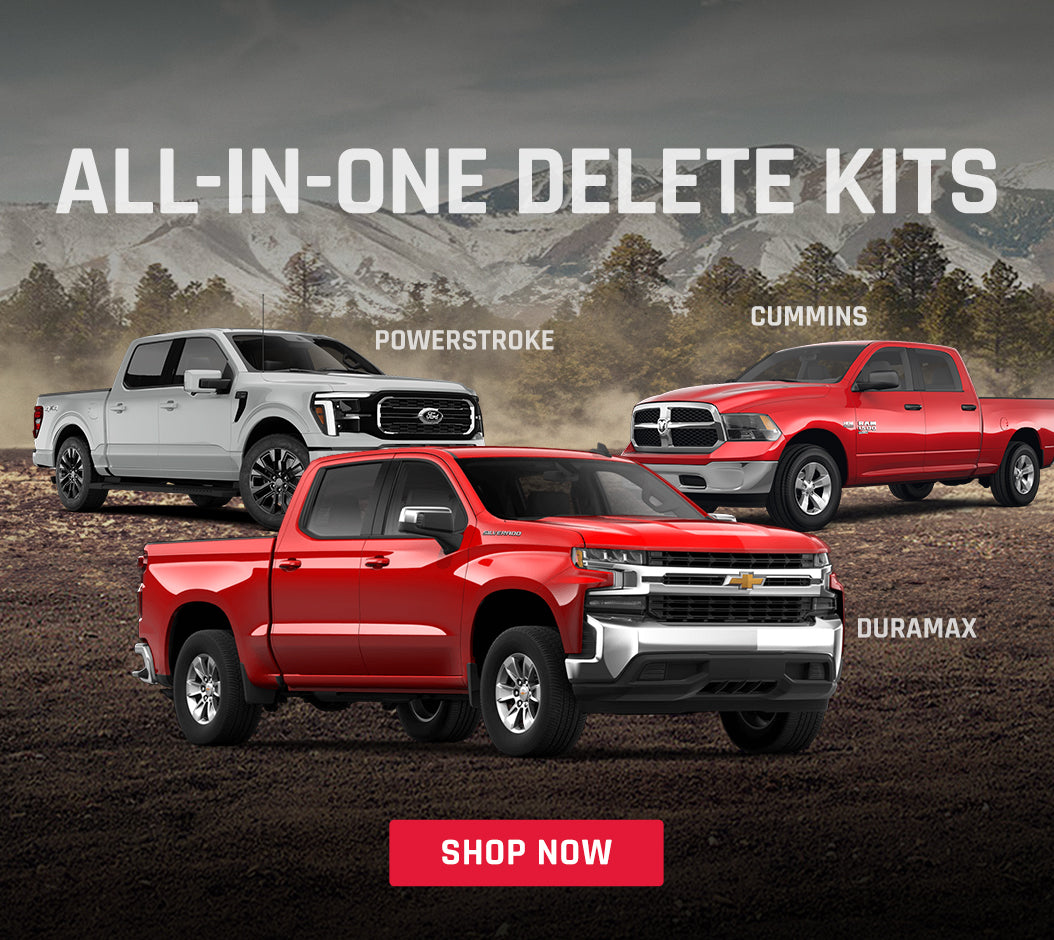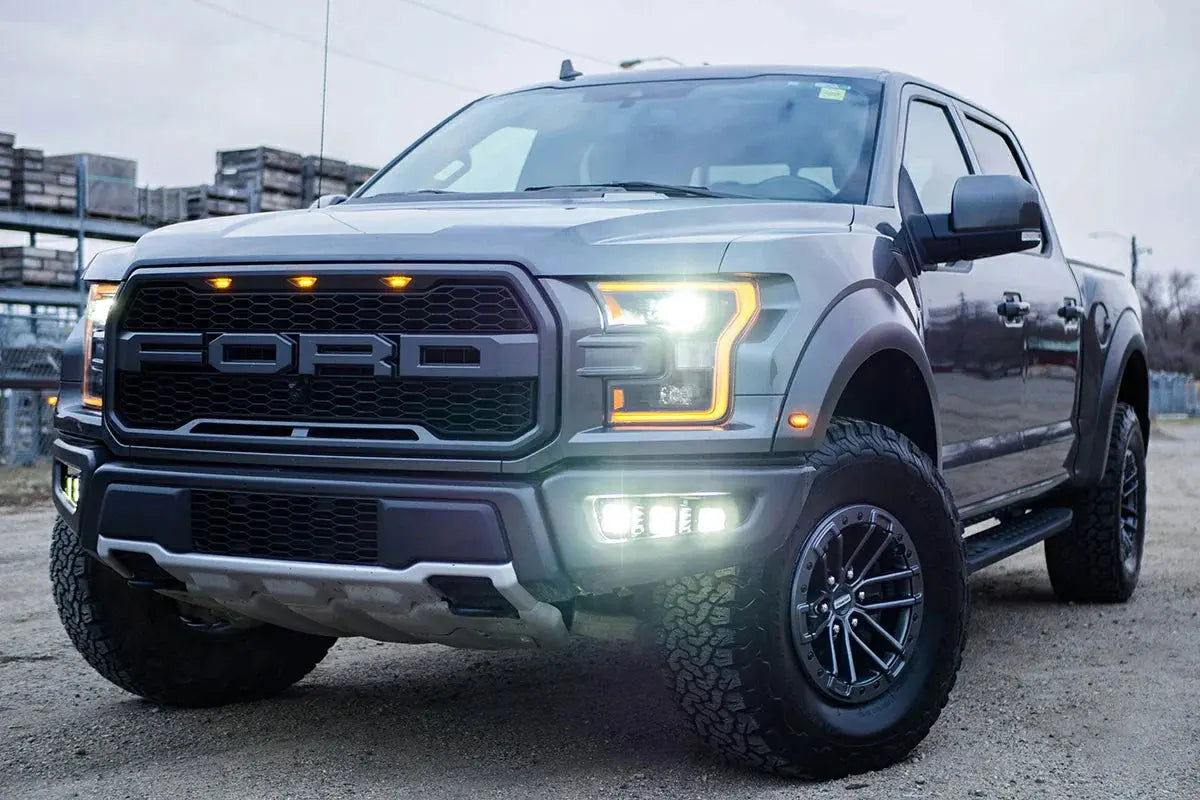Learn how to delete a diesel truck with expert tips, cost breakdowns, legal insights, and performance benefits. Explore delete kits and DIY options.
Introduction: What Is "Diesel Deletion"?
As a professional diesel modification expert, it’s essential to understand what “diesel deletion” means. Diesel deletion refers to the removal or disabling of emission system components, including the EGR, DPF, NOx filters, and DEF system.
The goal of deletion is to boost performance, reduce maintenance issues, and potentially improve fuel efficiency. If you’re tired of constant repair bills or looking to increase power for hauling or off-roading, diesel deletion may be the solution.
In this article, we’ll walk you through the diesel deletion process, the pros and cons, and what you need to know before diving in.
How to Delete a Diesel: DIY vs. Professional Installation
Can I Delete My Diesel Truck Myself?
If you have mechanical skills and the right tools, deleting a diesel truck yourself is possible. You'll need to remove the DPF, EGR system, and potentially the NOx and DEF systems.
After removing the parts, you’ll also need a tuning device to reprogram the truck’s ECU to avoid error codes and limp mode. It’s a challenging task, so it’s best to get professional help for the best results.
Tools and Parts You’ll Need
For a DIY diesel delete, you’ll need mechanical tools like wrenches, screwdrivers, and torque wrenches. But more importantly, you’ll need a reliable Diesel Delete Kit designed for your specific truck model.
These kits come with everything you need to remove the emission components and ensure a smooth process.

Cost of Diesel Deletion: What You’re Looking at
Hardware and Parts Costs
The main cost for diesel deletion comes from the parts and kits. A high-quality Diesel DPF Delete Kit typically ranges from $500 to $1500, depending on the brand and what’s included.
Labor Costs
If you opt for professional installation, labor costs will also factor into the price. Expect to pay anywhere from $200 to $500, depending on the complexity of the job and where you’re located.
Total Cost Estimate
When factoring in parts and labor, the total cost for deleting a diesel truck typically ranges from $700 to $2000. While this is a significant investment, many truck owners find it worth it for the long-term savings in maintenance costs and performance gains.
The Benefits and Risks of Diesel Deletion: Is It Worth It?
Performance Boost
One of the main benefits of deleting your truck’s emission system is a significant performance boost. Removing the DPF and EGR reduces exhaust restrictions, improving airflow and overall power.
Lower Maintenance Costs
By deleting the emission systems, you reduce the number of components that could fail. For example, the DPF can clog and cause expensive repairs. Deleting it means fewer parts to break, leading to less frequent repairs and lower overall maintenance costs.
Legal and Environmental Concerns
However, deleting your diesel truck’s emission system isn’t without risks. Tampering with emissions systems is illegal under federal law. If you’re caught, you could face fines and potentially have your truck taken off the road. Additionally, deleting the emission systems leads to increased tailpipe emissions, which harms the environment.
The Steps to Deleting a Diesel Truck
Removing the Emission System
The first step in deleting your diesel truck is removing the DPF, EGR, NOx filters, and DEF system. This process can be tricky, so make sure you’re following the correct steps and using compatible parts.
Tuning the ECU
Once the physical parts are removed, it’s time to tune the truck’s ECU. Without proper tuning, your truck may go into limp mode or throw error codes, making it unusable. You’ll need a tuning device to disable the emission system functions and optimize engine performance.
Using the Best Delete Kit
When performing a diesel delete, make sure you use a high-quality kit, like the Diesel Delete Kits for Ford, Dodge & GMC | SPETUNER All-in-One Kits. These kits come with all the necessary components and detailed instructions to help ensure the job is done right.
Diesel truck delete INSTRUCTION
Legal Risks: Is Deleting a Diesel Truck a Felony?
Legal Concerns
Deleting your diesel truck’s emission system is illegal under federal law. If caught, you could face fines of up to $5000 or more. The penalties increase if you’re selling or installing emissions defeat devices.
State Laws Vary
The regulations regarding diesel deletion vary from state to state. In some states, where there is no emissions testing, deletion may not cause issues. However, in places like California, the fines can be much higher if you’re caught.
Compliance and Safety
Before proceeding with any deletion, it’s essential to check your local laws. In some cases, it might be better to consider alternative ways to boost performance without violating emissions regulations.
Do You Have to Tune a Diesel Truck If You Delete It?
Tuning Is Essential
If you’re deleting your diesel truck’s emission systems, tuning is an absolute necessity. Without proper tuning, your truck’s ECU will not function correctly, and you’ll experience error codes, limp mode, and poor engine performance.
Choosing the Right Tuning Device
For the best results, choose a professional tuning device that will properly reprogram your truck’s ECU. This ensures the truck runs smoothly post-deletion without any hiccups.
Alternatives to Diesel Deletion
Legal Performance Boosts
If you’re not interested in dealing with the legal and environmental risks of deletion, there are alternatives. DPF-back exhaust systems, cold air intakes, and performance tuners are all great ways to boost your truck’s performance while staying within legal bounds.
Recommended Delete Kits
If you do choose to delete your diesel truck’s emission systems, consider using a high-quality kit like the Diesel Delete Kits for Ford, Dodge & GMC | SPETUNER All-in-One Kits. These kits include all necessary parts for an effective and safe deletion process.
Conclusion and Recommendations
Weighing the Pros and Cons of Diesel Deletion
Deleting your diesel truck’s emission systems can offer major performance benefits. However, it also comes with legal and environmental consequences that need to be carefully considered. Be sure to understand the risks before making a decision.
Make Informed Decisions
If you decide to delete your truck’s emission system, make sure to use a reliable Diesel Delete Kit and consult with professionals for the best results. Be sure to follow the necessary steps for tuning and check your local regulations before proceeding.
Consult Experts for Guidance
Before taking the leap, it’s always wise to consult with professionals who can guide you through the process and ensure the modifications are done correctly and safely. SPETUNER’s expert team can provide the advice and support you need for any diesel modification project.
FAQs
Q: Can I delete my diesel truck myself?
A: Yes, you can delete your diesel truck yourself if you have the right tools and knowledge. However, it requires removing complex components like the DPF and EGR systems, as well as tuning the truck’s ECU. If you're not confident in your skills, it’s best to consult a professional to avoid mistakes.
Q: How much does it cost to delete a diesel truck?
A: The cost of deleting a diesel truck can vary. For parts and kits like the Diesel DPF Delete Kit, expect to spend between $500 and $1500. If you go with professional installation, you’ll need to budget for labor, which typically costs $200 to $500. Overall, you could be looking at anywhere from $700 to $2000 in total costs.
Q: Is it worth deleting a diesel truck?
A: It depends on what you’re looking for. Deleting your truck can significantly improve engine performance and fuel efficiency, especially if you frequently tow or off-road. However, the legal and environmental risks are something to consider. If you’re after more power and fewer maintenance headaches, it might be worth it, but weigh the potential fines carefully.
Q: What does a delete do to a diesel truck?
A: A delete removes restrictive emission components like the DPF and EGR, which can boost your truck’s power, improve throttle response, and reduce maintenance costs. However, it also increases tailpipe emissions and may lead to legal issues if not done correctly. Performance gains are substantial, but consider the trade-offs.
Q5: Is deleting a diesel a felony?
A5: Deleting a diesel truck’s emission systems is illegal under federal law, as it violates EPA regulations. If you’re caught, you could face fines up to $5000 or more. The severity of the penalties depends on your location, but it’s important to know the risks before making this decision.
Q6: Do you have to tune a diesel if you delete it?
A6: Yes, tuning is absolutely necessary after deleting a diesel truck’s emission systems. The truck’s ECU needs to be reprogrammed to disable the emission system functions and prevent errors. A proper tune ensures your truck continues to run smoothly and doesn’t enter limp mode.
Q7: What parts are included in a typical Diesel Delete Kit?
A7: A typical Diesel Delete Kit includes components like pipes, sensors, and necessary brackets to replace the DPF, EGR, and other emission system parts. Some kits also come with tuning devices to help reprogram your truck’s ECU, making it essential for a complete and functional delete.
Q8: How long does it take to delete a diesel truck?
A8: The time it takes to delete a diesel truck can vary, but generally, it takes between 4 to 8 hours for professional installation. If you're doing it yourself, the process might take longer, depending on your experience and the tools you have at hand.
Q9: Will deleting my diesel truck void the warranty?
A9: Yes, deleting your diesel truck will likely void any manufacturer warranties, especially for the powertrain. Since deleting involves tampering with emission components, it can affect your truck’s warranty coverage, so make sure to weigh the risks before proceeding.
Q10: Can I delete my diesel truck and still pass emissions testing?
A10: No, once you delete your diesel truck’s emission systems, it will not pass emissions testing in most areas. This is why you should consider the legal implications and local testing requirements before making the decision to delete your truck. If you live in an area with strict emissions laws, it’s best to avoid deletion altogether.






